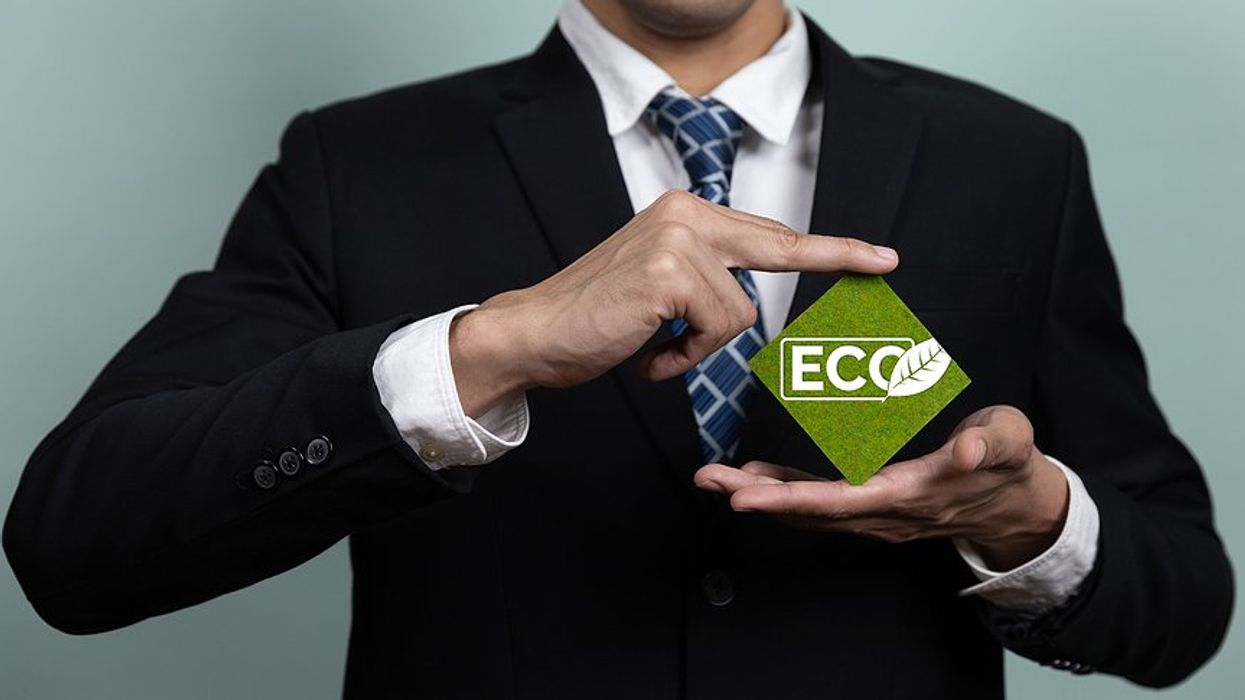
Sustainability is important in every aspect of life, including business. It's no secret that sustainable business practices can increase efficiency, drive long-term success, and create a better future for all. How are you incorporating sustainability into your organization's strategy, operations, and culture? How can you align environmental and social responsibility with business goals while making a positive impact on the planet and society?
We recently asked our leading executives for their advice on how to incorporate sustainability into an organization's business practices.
Here are their responses...
Michael Willis, Sports Business Operations Executive
Sustainability is more than a buzzword; it’s a business imperative. The world faces environmental and social crises, and consumers demand that companies take responsibility and action. For companies to stay competitive and relevant, they must commit to sustainability.
For example, the office manager at the NFL came down to my floor to discuss plastics with the department. We all were given an additional trash receptacle. One was for trash, and the other was for recycled plastics. City officials are working around New York City businesses to explain new initiatives the city is taking concerning recycling for the environment.
For every plastic water bottle found in the regular trash, there was a $100 fine to the NFL.
As a powerful platform for change, sports have an opportunity to be at the forefront of the global movement toward a more sustainable future.
League-Wide Fundraisers – sports leagues, teams, and athletes are developing creative ways to meet sustainability goals, such as One Tree Planted.
One Tree Planted is an environmental organization that partners with several sports organizations to support sustainability in sports. For example:
- Major League Soccer – 2022 MLS planted 28,000 trees in the US and Canada—one thousand trees for each of Major League Soccer’s 28 teams.
- Major League Baseball – 2022 MLB planted 5,000 trees in California—for the post-restoration project for the home runs hit in the 2022 MLB Home Run Derby.
Consumers and company stakeholders value sustainability and expect businesses to care too. As consumers become increasingly aware of the impact of their everyday choices, they are looking for brands and products that do good for people and the planet.
More than 90% of global consumers surveyed say they want companies to address social and environmental issues.
Many NFL stadiums maintain that all food served to fans during the game comes in compostable containers.
The sports industry has a long way to go in sustainability, but the processes are in place to make this initiative a mainstay in current and future operations.
Michael Willis has 18+ years of experience working with accounting & sports organizations and has managed P&Ls of $10M - $125M+ with budgets of $3M-$50M+. He worked for the NFL for 22 1/2 years, mainly with the game officials working on the financial/accounting side of the business.
Lisa Perry, Global Marketing Executive

Image from Bigstock
In today's rapidly changing world, sustainability has become a key focus for businesses across industries. Gone are the days when profit was the sole metric of success. Consumers, employees, and stakeholders demand more from companies, urging them to embrace sustainable business practices. Here are some ways to incorporate sustainability into your business strategies and examples of companies leading the way.
Environmental Stewardship:
Consumers are drawn to companies that actively reduce their carbon footprint, conserve energy, and minimize waste. Companies like Patagonia have long been at the forefront of environmental stewardship. Patagonia uses recycled and organic materials in its products and actively advocates for environmental causes. It launched the "Worn Wear" program, encouraging customers to repair and reuse their clothing, reducing waste, and promoting a culture of sustainability. Patagonia's founder recently donated the company worth $3 billion to fight climate change.
Meeting Consumer Expectations:
Today's consumers are more informed and socially conscious than ever before. They seek brands that align with their values and support the causes they care about. Sustainable practices have become a key consideration for consumers when making purchasing decisions. Unilever has made sustainable practices a cornerstone of its business strategy. The company's Sustainable Living Plan focuses on reducing its environmental impact, enhancing social equity, and improving health and well-being. Unilever's commitment to sustainability resonates with consumers, boosting its brands like Dove and Ben & Jerry's, known for their ethical and socially responsible initiatives. By integrating sustainability into their business operations, companies can attract and retain customers who prioritize ethical consumption.
Enhancing Brand Reputation:
Sustainability is no longer an optional add-on for businesses; it has become a critical component of brand reputation management. Telsa has revolutionized the automotive industry with its commitment to sustainability. By developing innovative electric vehicles that reduce greenhouse gas emissions, Tesla has built a strong brand reputation as a pioneer in clean transportation. The company's dedication to sustainability has attracted a loyal customer base and positioned it as a leader in transitioning to a low-carbon future. In a competitive market, a strong brand reputation can be a significant differentiator and a catalyst for growth.
Cost Savings and Efficiency:
Contrary to popular belief, sustainable practices can lead to cost savings and increased operational efficiency. Companies can cut expenses, improve their bottom line, adopt energy-efficient technologies, optimize supply chains, and reduce waste. IKEA, the global furniture retailer, has integrated sustainability into its operations to achieve cost savings and efficiency. The company has invested in renewable energy sources, such as solar and wind power, to reduce its carbon footprint. Additionally, IKEA focuses on designing products that are durable, recyclable, and made from sustainable materials. These practices align with the company's values and drive operational efficiency and cost savings. Embracing sustainability benefits the planet and drives business success in the long run.
Regulatory Compliance and Risk Mitigation:
Adopting a proactive approach to sustainability minimizes business risks and creates a resilient foundation for future growth. Walmart has made significant strides in integrating sustainability into its business practices to ensure regulatory compliance and mitigate risks. The company has implemented various sustainability initiatives, such as reducing greenhouse gas emissions, improving energy efficiency, and promoting responsible sourcing. Walmart aims to operate with 100% renewable energy and actively engages with suppliers to improve sustainability throughout its supply chain. By prioritizing sustainability, Walmart meets regulatory requirements and reduces potential risks associated with environmental and social issues, enhancing its long-term resilience and reputation. Walmart's commitment to sustainability has influenced the entire retail industry, encouraging other companies to follow suit and embrace sustainable practices to meet regulatory standards and mitigate associated risks.
Sustainable business practices are no longer a mere option; they have become imperatives for companies aiming to thrive in today’s world.
Lisa Perry helps companies build leadership brands, driving loyal customers & delivering profitability. She does this through a process that builds brands consumers love. Her goal is to help companies develop, monetize, and grow their brands.
How is your organization incorporating sustainability into its business practices? Join the conversation inside Work It Daily's Executive Program.
- Executive Spotlight: How To Improve Business Etiquette ›
- Recognizing Earth Day From A Recruiting Perspective ›
- Driving Revenue vs. Optimizing Profitability: How To Work Smarter For Business Growth ›

 Bigstock
Bigstock Bigstock
Bigstock Bigstock
Bigstock


